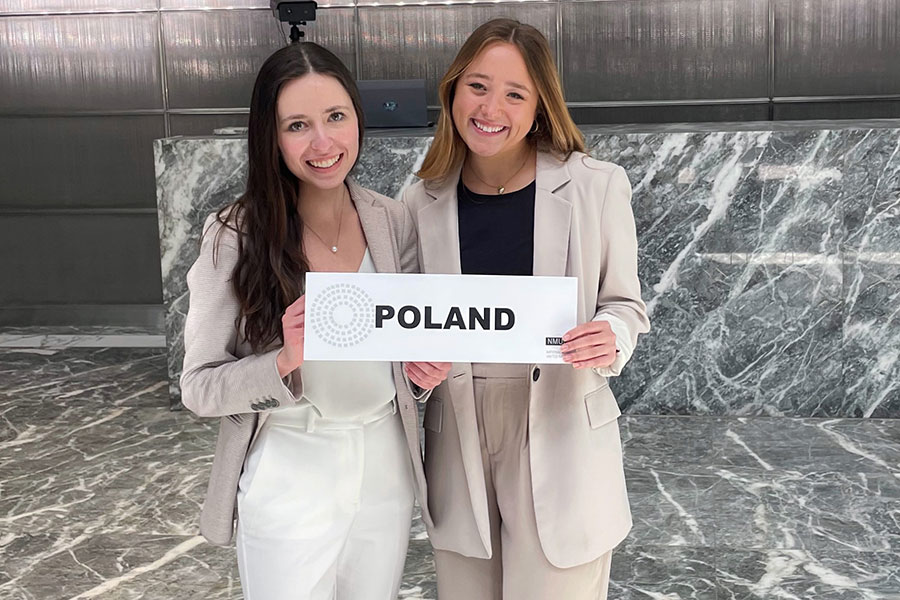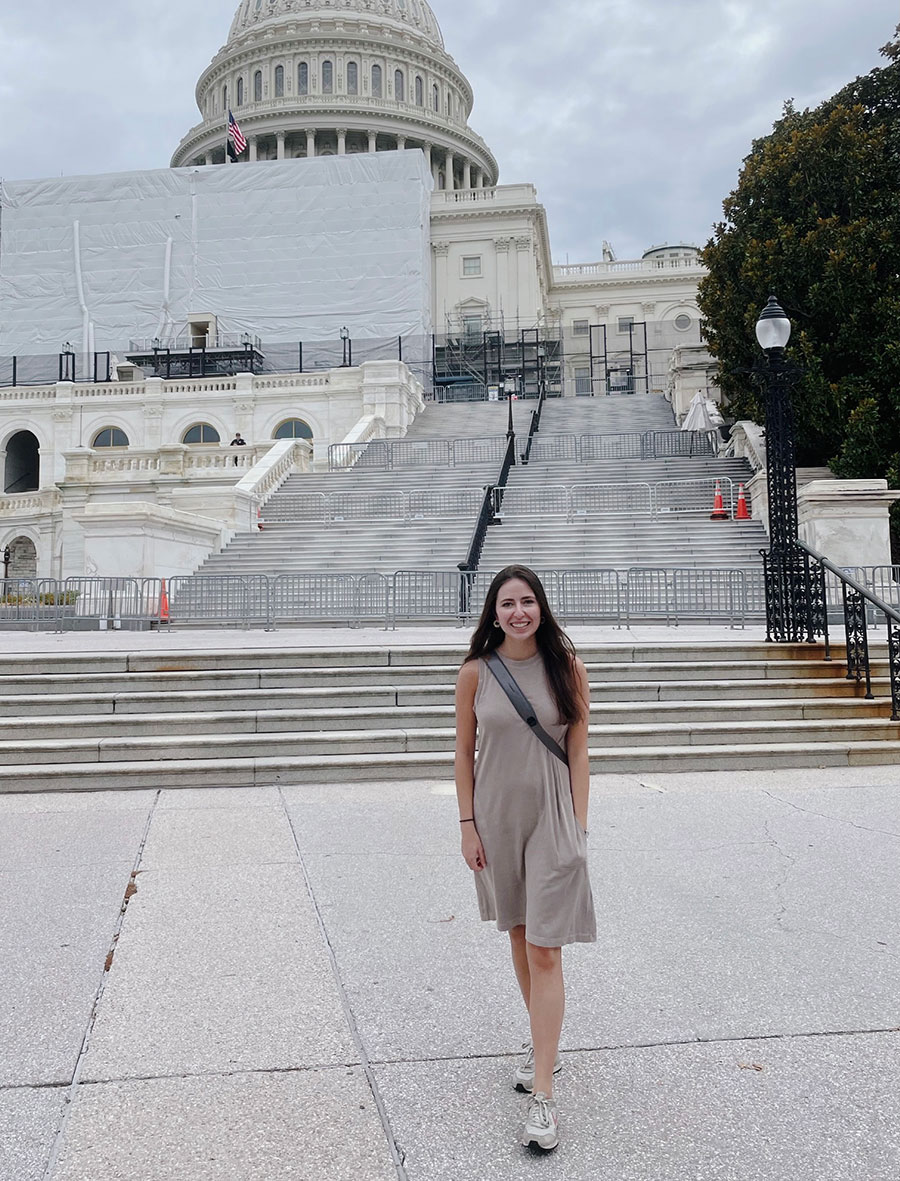Baylor Engaged: Lauren Jarvis

One Tuesday during freshman year, a high schooler that I tutored at The Cove Waco, a center for youth struggling with homelessness, slid a homework sheet covered in exchange rate problems toward me and asked for help. The timing was perfect since my macroeconomics class at Baylor had just spent several class periods discussing exchange rates. When I explained that different currencies have different values, I saw his face brighten with a “light bulb moment.” But then his eyes narrowed with a mischievous glint, and he announced, “Bruh, I’m gonna expose those rappers who be flexing their money!”
As proud as I was to distill such an unexpected passion for international finance in a high school freshman, I later reflected on the moment and realized how special it was that my education had served others beyond the classroom. And ultimately, I have come to think that is what education is for: it is a tool for service.
I grew up in and near San Antonio, Texas. The city is most remembered for the Alamo and celebrated for its Fiesta, but in the alleys behind the Riverwalk, homeless populations struggle to eat. As I learned more about politics throughout high school, I observed my hometown with bittersweet curiosity and questioned the systemic causes of poverty, saddened that the same crises I observed at home were even more deeply entrenched abroad.
By the end of my freshman year, I knew I wanted to pursue foreign policy, but I was unsure of where I fit in the political system. During my senior year of high school, a scholarship interviewer asked me what type of policy I hoped to pursue the future. I floundered my answer because I was truthfully unsure—I did not know the field or my options. I realized if I wanted to learn how to use my education to serve, I needed to maximize my education by embracing opportunities beyond the classroom.
The next three years thus became my period of strategic exploration. I aimed to test the foreign affairs field by pursuing internship opportunities in different subjects and agencies, including NGOs, think tanks, federal agencies, and international organizations. After I took my first internship at the United Nations Information Center, I found myself drawn to foreign policy discussions about conflict and humanitarian crises. I began to discover answers to some of the questions I had asked while growing up in San Antonio, but I also found an increasingly endless world of questions and passions.
I followed my intuition and launched into humanitarian work. I tracked refugee data in Yemen and Myanmar at the US State Department, wrote reports on human rights abuses for the US Embassy in Zimbabwe, discussed diplomacy and humanitarian crises with under-Secretary Generals of the UN, publicized security reports at the Foundation for Defense of Democracies, and helped a new community development NGO gain its footing in Waco. Each time, I found that my classroom education informed my experiences in public service and that my work experiences deepened my curiosity in the classroom.
As I learned about conflict and humanitarian emergencies through the classroom and my work, I became curious about the relationships between development and crisis. I wondered how to balance political decisions and altruism in humanitarian policy, how to localize humanitarian response, and how to preemptively address the causes of crises. The questions are puzzles that require a balance of both academic questioning and public service.
When I approached the Office of Engaged Learning (OEL) a couple years ago and described some of the questions I had been thinking about, Dr. Hogue and Dr. Benyousky pointed me to the Marshall Scholarship, which funds two Master’s degrees in the UK. The friendships I had formed with Model UN delegates from around the world had taught me the value of listening to international voices on the humanitarian topics about which I felt passionate, so I embraced the idea of pursuing graduate school abroad.
I soon learned about the London School of Economics and Political Science (LSE) Master’s degree in International Development and Humanitarian Emergencies (IDHE). The program was a perfect combination of my interests and addressed many of the questions that had gradually began filling the Notes app on my phone—and as a bonus, it was located in a beautiful city with a sense of humor as dry as my own.
I quickly found myself surrounded by a supportive community in the OEL, Honors College, and Political Science Department, and I was amazed by the faculty and staff that selflessly invested in my ambitions during the application process. A few months ago, I received a phone call that I had been selected as a 2023 Marshall Scholar, and in a few months, I will head to LSE to study in the IDHE program.
For me, pursuing a career in public service meant integrating my classroom education with experiences outside the classroom. I had many Google docs titled “four-year college plan” at the beginning of college, but I am grateful that my college career evolved along its own unique path. Maximizing my education at Baylor has allowed me to confirm my long-term goals, to actively participate in humanitarian decision-making as an undergrad, and to share my enthusiasm for exchange rates. And with the support of the Baylor community, it has ultimately led me to a special opportunity to continue maximizing my education, and this time, I will be trading in my Pinewood latte for an early grey tea in the busy streets of London.
